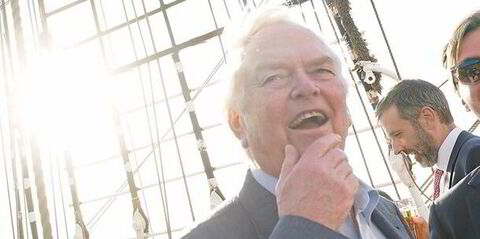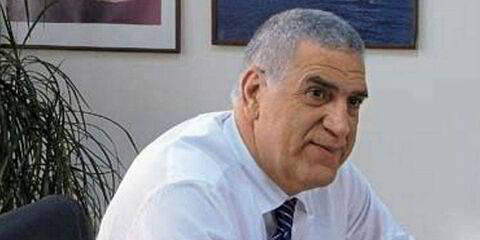Greeks — unlike Americans, Norwegians and Singaporeans, for example — are certainly not the first nationality that springs to mind when thinking of typical owners in the global offshore sector.
But Greeks are by no means absent. There are indeed some blue-chip names, high-profile players, long-established operators and brand-new entrants in this complex arena, while the allure of offshore is regularly said to be growing for the nation’s owners.
Some well-known Greek offshore names are George Economou with Ocean Rig, Gregory Callimanopulos with Toisa and Sealion, Victor Restis with Golden Energy Offshore, Basil Papachristides with Hellespont Offshore and Evangelos Pistiolis with his jack-up newbuildings.
Greek owners are widely known for being adept at keeping low profiles, which means mapping out their offshore activities is as challenging as it is for any marine segment. Some Greek offshore investors stay well below the radar. But scanning official documents for the registry of Norwegian KS (limited partnerships), for example, can turn up Greek names serving on the boards of offshore projects.
But why are relatively few Greeks in offshore?
Vessels are vital components but still represent just a tiny sliver of the overall massive costs for an offshore project. Few oil companies are interested in taking the chance of chartering ships that are not either already on the water or a few months from yard delivery. And since having firm charters in place before signing a yard order is fairly rare, speculative newbuilding contracts are common in offshore, while, in some cases, they are an absolute must. Although a few reasons can be listed that would naturally prevent Greeks from figuring large in offshore, lacking the guts to place speculative orders is probably not one of them.
One reason may be the expense, or the complexity of some of the high-service orientated operations. Charterers’ demands for immediate follow-up service are intense and growing, while the price of assets has traditionally been rather expensive. Although falling steadily in recent years for units such as platform supply vessel (PSVs), the barrier remains often prohibitively high in areas like the subsea sector, which serves to slow the pace of any entries, Greek or otherwise.
Another reason may be the physical size of the market. At around 3,500 or so relevant offshore support vessels (OSVs) in the fragmented world fleet, the volume of ship sales is small compared to massive markets like tankers and bulkers, where Greeks are often referred to as masters of sale and purchase (S&P).
For one rather obvious reason, take a look at any world map showing the most significant, mature offshore oilfields. The US Gulf of Mexico (GoM) and the North Sea both gave their respective nations a natural entry point for fledgling owners to work as offshore pioneers, developing the very profile of future vessels, even as far back as the 1950s for the GoM with the likes of Tidewater.
In other words, Greece does not have the North Sea on its doorstep — and neither does France, which is probably why there is only one large offshore owner, Bourbon, in that country instead of five, 10 or 20 owners, as is found in areas with large mature offshore fields. So Greece is not alone in this respect.
Out of the visible investors, George Economou has created the most value with ultra-deepwater (UDW) specialist Ocean Rig and its 11 UDW rigs. It had a contract backlog of work in the first quarter this year totalling $5.4bn. At that point, its drillships were looking at average day rates of $526,000, with a cash-flow break-even rate of about $373,000 per day, for a surplus of $153,000 per day at 92.5% utilisation.
Since the early 1980s, on the vessel side, Gregory Callimanopulos has built up Toisa, and its UK-based vessel manager Sealion, into a successful, world-class diversified operation, within the core supply sector and subsea. It has a fleet of about 26 ships and a profile as a high-quality operator.
Victor Restis has bought an old North Sea owner and rebranded it as Golden Energy Offshore, which is based in Norway’s offshore cluster in Aalesund. Golden Energy can trace its history back more than 80 years as Ugelstad Rederi and is staffed with Norwegian offshore veterans. It just signed a new order in China for two PSVs for delivery in 2016, which means it is heading towards a 10-strong fleet.
Well-known Greek luminary Basil Papachristides and his Hellespont Group returned to the offshore sector in 2009, after working with North Sea well testing in 1993, by ordering nine PSVs. Today, industry databases list the company with four PSVs.
Evangelos Pistiolis, the boss of US-listed Top Ships, recently made an entry into the promising market for jack-up rigs by ordering up to six high-spec units in China for about $240m each, using his Central Shipping Monaco (CSM) for the project. In recent months, heavy pressure has been seen in the floaters market but jack-up demand is high.



